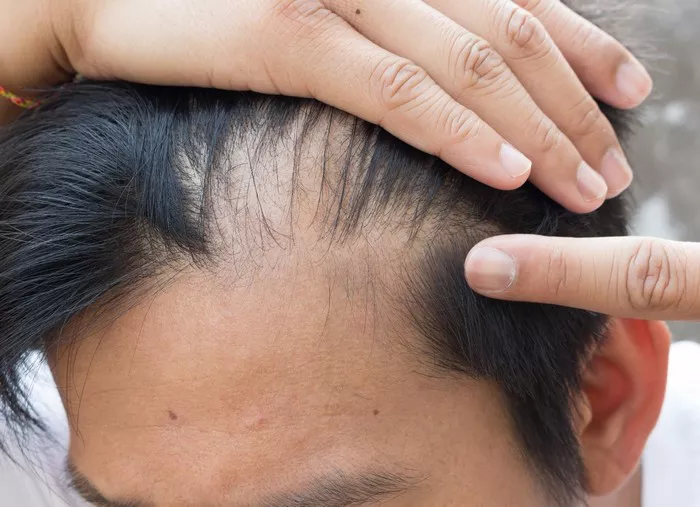Hair fall can be a distressing concern for many individuals, leading them to search for effective solutions. In the vast landscape of hair fall medications and treatments, it’s essential to find the most suitable medicine for your specific needs. In this detailed guide, we will explore various medicines, their effectiveness, potential side effects, and factors to consider when choosing the best medicine for hair fall. Let’s embark on this journey towards healthier, fuller hair.
1. Understanding the Causes of Hair Fall
Before we dive into the world of hair fall medicines, it’s crucial to understand what causes hair fall. Several factors can contribute to hair loss, including:
a. Genetics: Hereditary factors play a significant role in male and female pattern baldness.
b. Hormonal Imbalances: Hormonal changes due to pregnancy, menopause, or medical conditions can lead to hair fall.
c. Nutritional Deficiencies: A lack of essential nutrients like iron, biotin, and vitamins can weaken hair.
d. Stress: High levels of stress can trigger hair loss.
e. Medical Conditions: Certain medical conditions, such as alopecia areata or thyroid disorders, can cause hair fall.
FDA-Approved Hair Loss Medications
The following are FDA-approved hair loss medications:
a. Minoxidil (Rogaine): Minoxidil is one of the most well-known over-the-counter hair loss treatments. Available in liquid and foam forms, it is applied directly to the scalp. Minoxidil works by increasing blood flow to hair follicles and has been shown to promote hair regrowth. However, results may take several months to become noticeable.
b. Finasteride (Propecia): Finasteride is an FDA-approved prescription medication primarily used to treat male pattern baldness. It works by inhibiting the hormone responsible for hair loss. It has demonstrated effectiveness in slowing hair loss and promoting regrowth, mainly in men. However, it is not recommended for women of childbearing age due to potential side effects.
c. Low-Level Laser Therapy (LLLT): LLLT devices, such as laser combs and helmets, utilize low-level laser light to stimulate hair follicles. While results may vary, some users have reported improvements in hair density and regrowth.
Natural Remedies and Supplements
The following are natural remedies and supplements:
a. Saw Palmetto: Saw palmetto is an herbal supplement believed to inhibit the hormone linked to hair loss. Some individuals have reported positive results with saw palmetto supplements.
b. Essential Oils: Essential oils like rosemary, lavender, and peppermint are used in scalp massages and DIY hair treatments. These oils may promote hair growth and improve hair and scalp health.
c. Biotin Supplements: Biotin, a B-vitamin, is essential for hair health. Biotin supplements may strengthen hair and promote growth.
Prescription Medications and Hair Growth Serums
The following are prescription medications and hair growth serums:
a. Corticosteroids: In cases of alopecia areata or other autoimmune hair loss conditions, corticosteroid medications may be prescribed to reduce inflammation and promote regrowth.
b. Platelet-Rich Plasma (PRP) Therapy: PRP therapy involves the injection of a concentrated solution of your platelets into the scalp. It has shown promise in promoting hair growth and thickness.
c. Topical Growth Serums: Some serums contain growth-stimulating ingredients like peptides, caffeine, and botanical extracts. These products claim to increase hair density and reduce hair loss.
Hair Transplantation and Restoration Surgery
For individuals seeking more permanent solutions, hair transplant and restoration surgery are viable options. These medical procedures involve the transplantation of hair follicles from one area of the body to the balding area. It’s essential to consult with a qualified surgeon to determine if you are a suitable candidate for these procedures and to discuss the associated costs and recovery.
Lifestyle and Nutritional Considerations
Your overall health and lifestyle can significantly impact hair fall. Consider the following factors:
a. Diet: A balanced diet rich in essential nutrients, such as protein, vitamins, and minerals, is crucial for healthy hair. Ensure you are getting the right nutrients to support hair growth.
b. Stress Management: Chronic stress can contribute to hair loss. Practicing stress-reduction techniques like yoga and meditation can help.
c. Scalp Care: Regular scalp massages and maintaining a clean, healthy scalp can improve blood circulation and promote hair growth.
See Also: 3 Best Ayurvedic Oil for Hair Fall: What You Need To Know
In conclusion
The best medicine for hair fall varies from person to person and largely depends on the underlying cause of hair loss. Consult with a healthcare professional or dermatologist to determine the most suitable treatment for your specific condition. Be patient, as hair regrowth can take time, and results may not be immediate. A well-informed decision is the first step towards a healthier, fuller head of hair.


